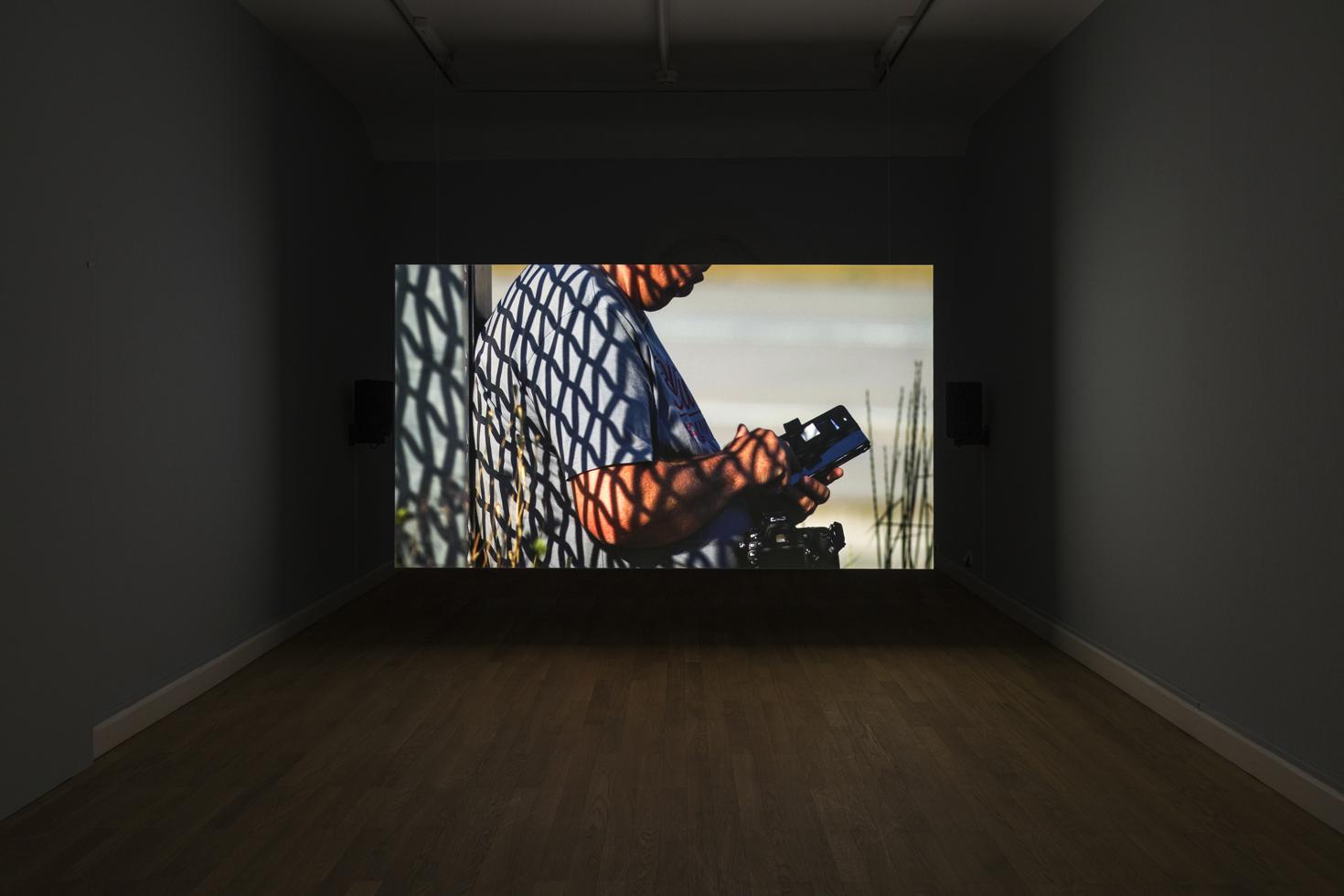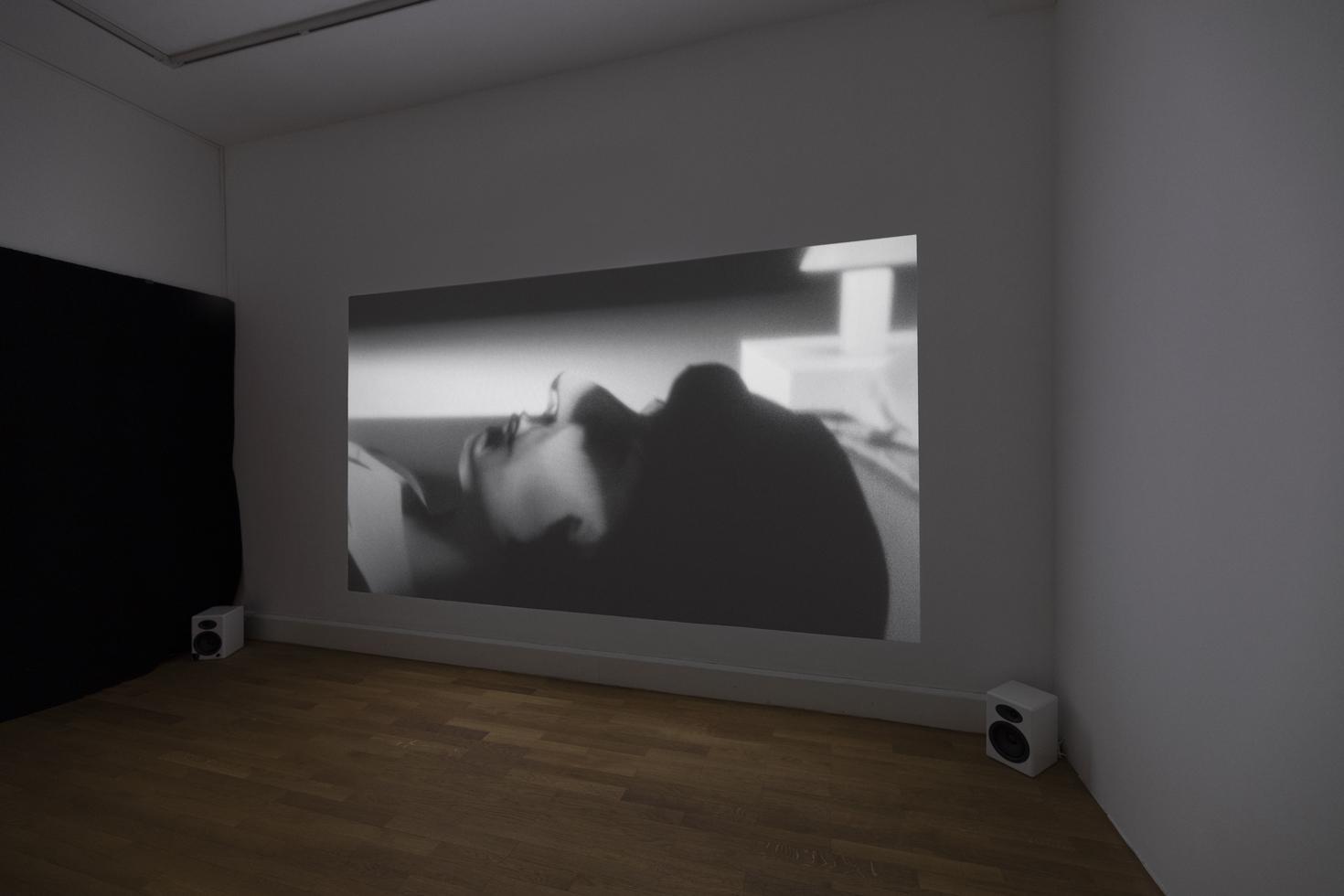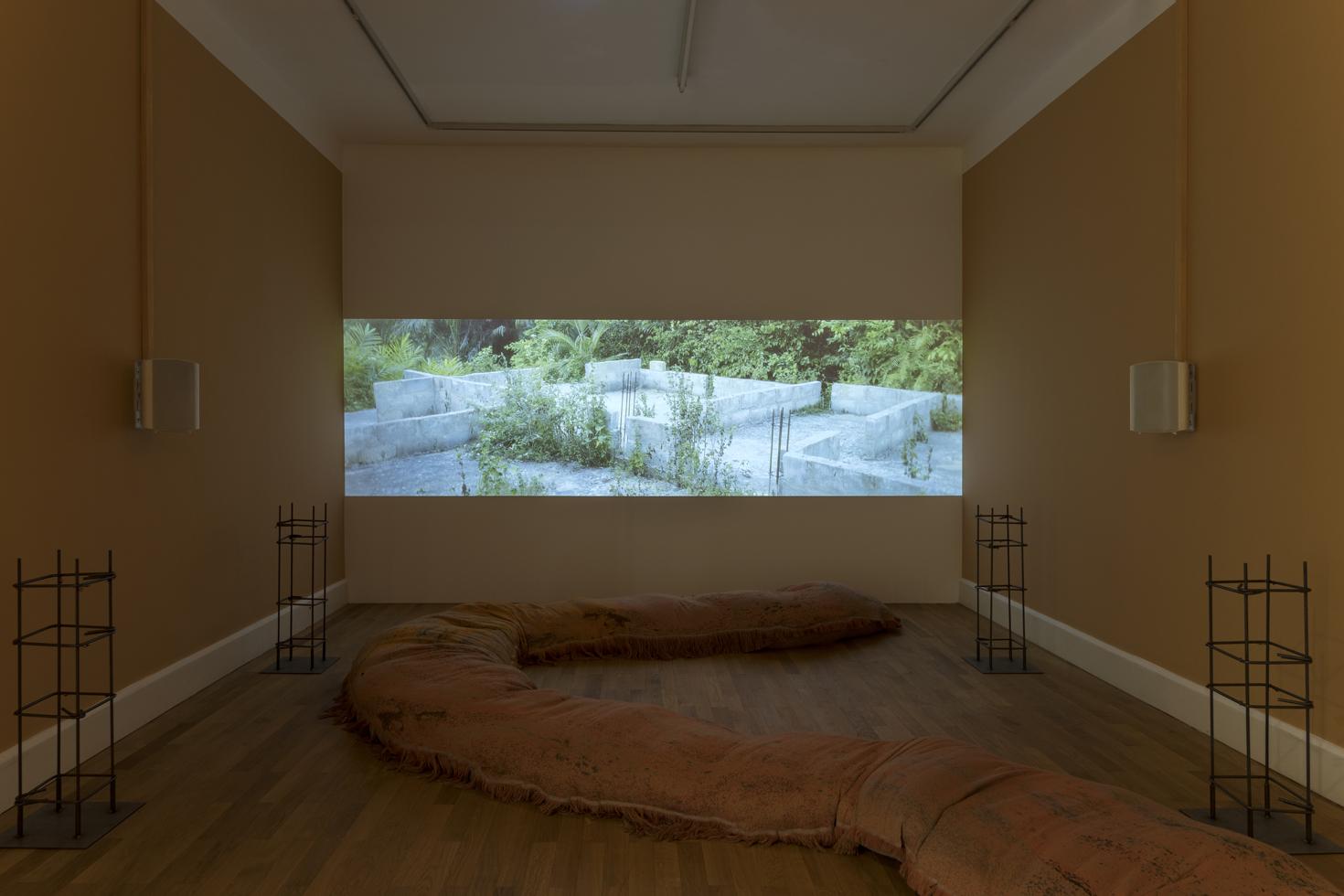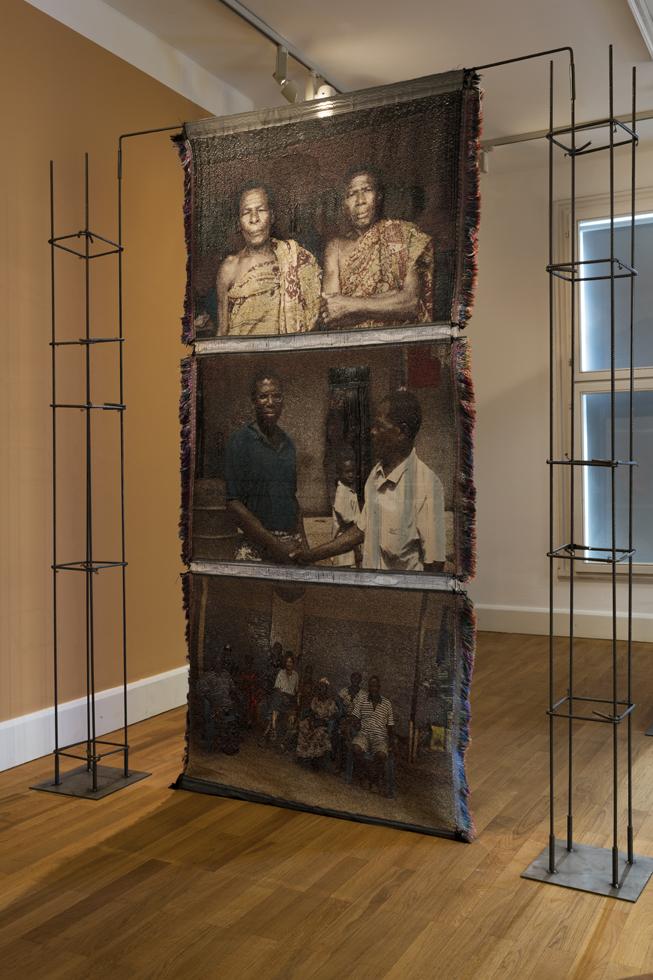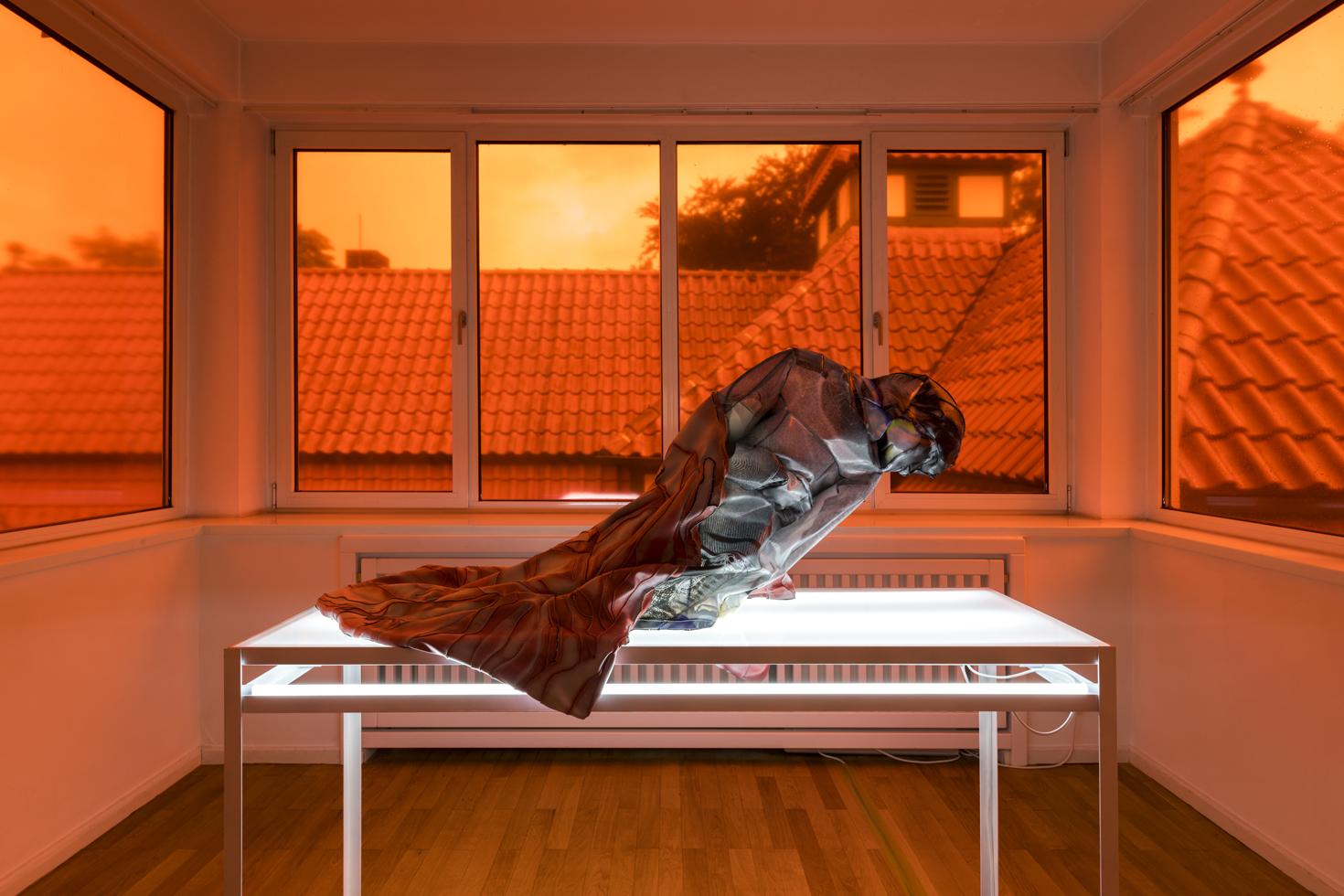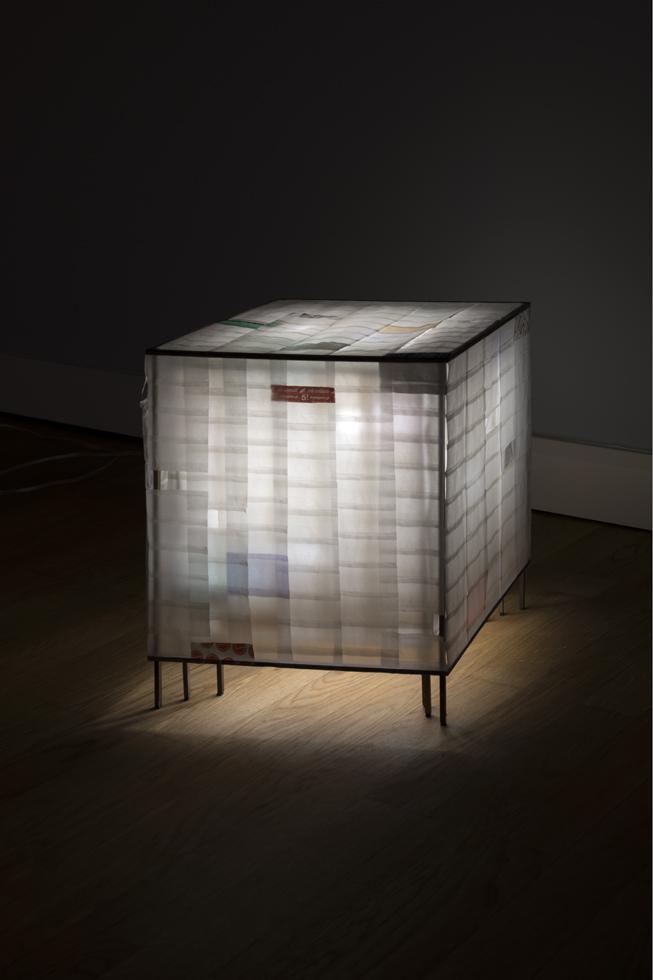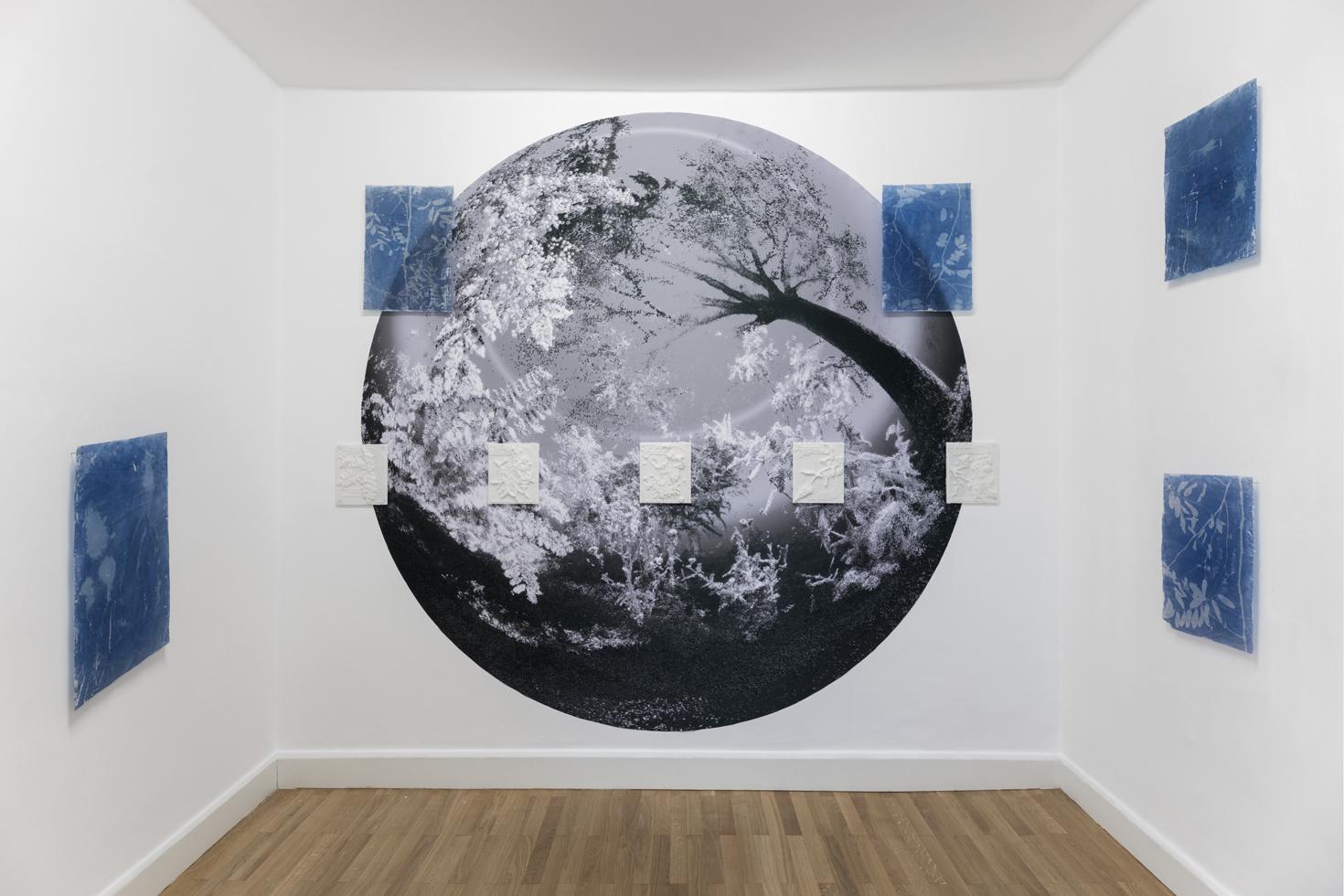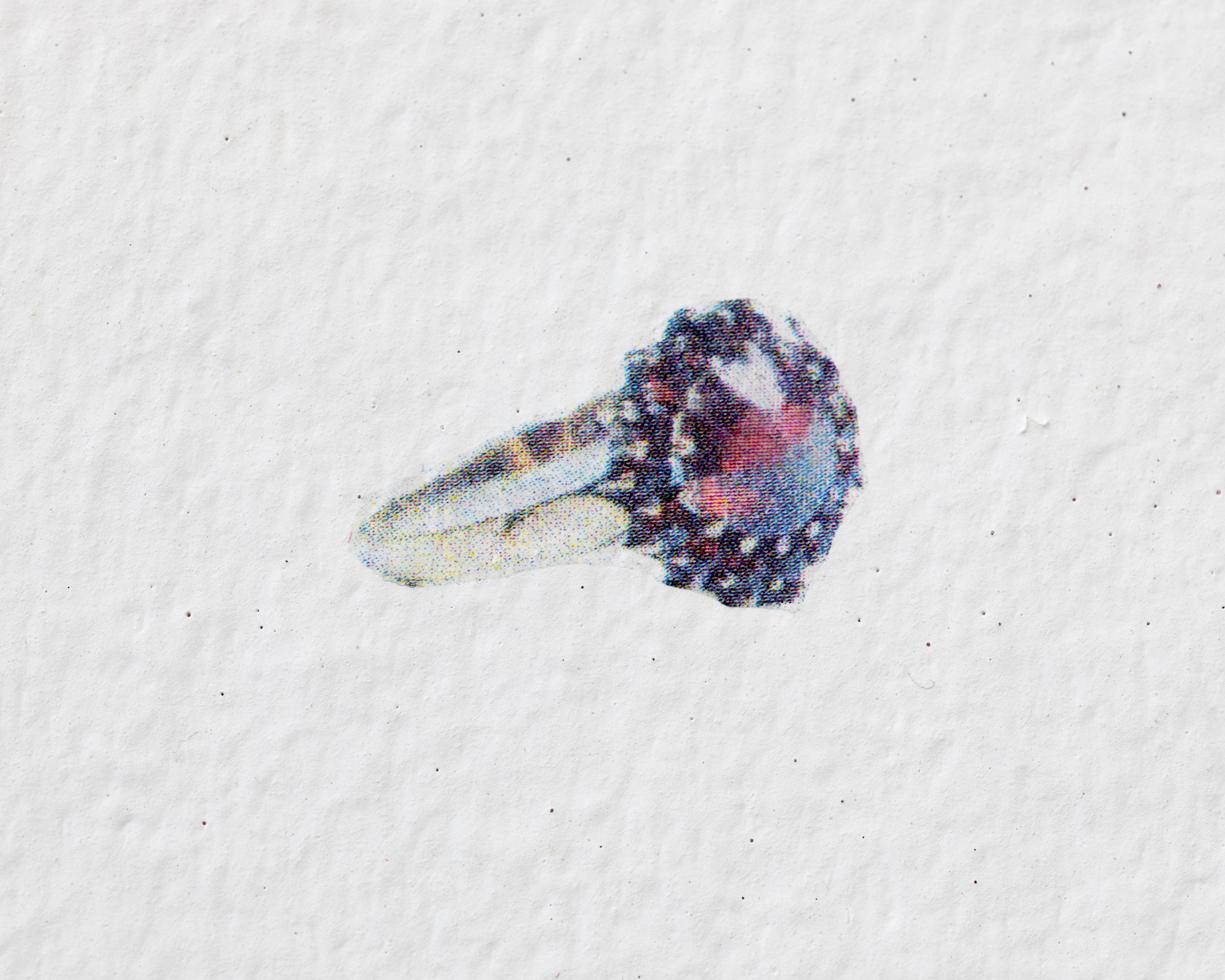21. Juni–12. Okt. 2025
Kunstpreis Delmenhorst 2025
Tomás Maglione, Vanessa Amoah Opoku, Fynn Ribbeck
Tomás Maglione, Vanessa Amoah Opoku and Fynn Ribbeck are the recipients of the Kunstpreis Delmenhorst 2025, which was established in 2024 to promote young contemporary art and is now being awarded for the first time. The prize will be awarded every two years by an independent jury of experts to three artists who have attracted attention with their final projects at art academies in German-speaking countries. They will be given the opportunity to exhibit their work at Haus Coburg and will each receive prize money of 5,000 euros and a bilingual publication. The 2025 prizewinners work cross-medially and share an intensive engagement with the medium of video.
With a keen awareness of his surroundings, Tomás Maglione explores public spaces and phenomena he encounters in everyday life and society. In this way, the artist finds his way to various, often politically significant themes. These range from the architecture of the skyscrapers in Frankfurt’s banking district to the images in language textbooks and unusual hobbies. The video When it burns from the inside (2023), for example, approaches a community of plane spotters who spend their free time watching and photographing aircraft. Gradually, the artist reveals not only different facets of the activity itself, but also individual desires and related socio-political issues.
Vanessa Amoah Opoku’s work explores migrant experiences and notions of home and belonging. She uses the creation of virtual worlds to trace her own family history and to give space to socially suppressed voices. For her filmic and photographic works, she uses an app on her smartphone to capture real places and environments as 3D scans. She then uses these to construct virtual spaces in which realities overlap. At the centre of Opoku’s multimedia installation Bricks and Cement Don’t Make a House (2024, with Joy Weinberger) is her family’s house in Ghana. Based on stories about its construction, the work highlights how migrant family histories can be shaped by desires and hopes, but also by failure and pain.
Fynn Ribbeck’s video works and sculptures collage historical archive material, including images of people, events or architecture. Often there is a reference to German history and the political present. Through filmic animation, the artist breathes new life into the material and weaves it into dreamlike, atmospheric narratives. The starting point for the video work An Eggshell Mind (2023) is the portrait of an anonymous woman from the 1930s. Ribbeck uses it to create a character living in a totalitarian system. Drawing on the visual language of early silent and propaganda films, the narrative delves into the protagonist’s thoughts and subconscious. The potential of totalitarian power to infiltrate every aspect of life is revealed in an oppressive way.
Ermöglicht wird der Kunstpreis Delmenhorst maßgeblich durch den Allgemeinmediziner Calin Pirvu und die von der Heyde-Cordes-Stiftung, mit weiterer Unterstützung durch den Freundeskreis Haus Coburg e.V. und die Stadt Delmenhorst.
Zur Ausstellung erscheint eine dreiteilige Publikation mit Texten von Linnéa Bake (zu Fynn Ribbeck), Carina Bukuts (zu Tomás Maglione) und Ann Mbuti (zu Vanessa Amoah Opoku).
Die Ausstellung wird kuratiert von Viktor Hömpler.
Der Preis wurde durch zwei Fachjurys vergeben.
Preisjury: Jennifer Chert (Galerie ChertLüdde, Berlin), Matilda Felix (Haus Coburg | Städtische Galerie Delmenhorst), Christoph Platz-Gallus (Kunstverein Hannover), Edit Molnár (Haus für Medienkunst, Oldenburg) und András Siebold (Kampnagel, Hamburg).
Vorschlagsjury: Kathrin Bentele (Kunstverein für die Rheinlande und Westfalen, Düsseldorf), Carina Bukuts und Liberty Adrien (Portikus, Frankfurt a.M.), Gürsoy Doğtaş (Kunsthistoriker und freier Kurator), Susanne Keichel (Hochschule für Grafik und Buchkunst, Leipzig) und Chus Martínez (Hochschule für Gestaltung und Kunst FHNW, Basel).
Für den Kunstpreis Delmenhorst 2025 nominiert waren: Noa und Lara Castro Lema, Corç George Demir, Rashiyah Elanga, Yuchu Gao, Golnaz Hosseini, Ludwig Kuffer, Tomás Maglione, Vanessa Amoah Opoku, Clarita Maria Phiri-Beierdörffer, Chloe-Rose Purcell, Arisa Purkpong, Fynn Ribbeck, Robin Stretz, Leonardo Bürgi Tenorio und Florin Weber.
Unser besonderer Dank geht an die Förderer für ihr großzügiges Engagement. Allen nominierten Künstler:innen und den Fachjurys danken wir herzlich für ihre Teilnahme.
Ermöglicht wird der Kunstpreis Delmenhorst maßgeblich durch den Allgemeinmediziner Calin Pirvu und die von der Heyde-Cordes-Stiftung, mit weiterer Unterstützung durch den Freundeskreis Haus Coburg e.V. und die Stadt Delmenhorst.
Zur Ausstellung erscheint eine dreiteilige Publikation mit Texten von Linnéa Bake (zu Fynn Ribbeck), Carina Bukuts (zu Tomás Maglione) und Ann Mbuti (zu Vanessa Amoah Opoku).
Die Ausstellung wird kuratiert von Viktor Hömpler.
Der Preis wurde durch zwei Fachjurys vergeben.
Preisjury: Jennifer Chert (Galerie ChertLüdde, Berlin), Matilda Felix (Haus Coburg | Städtische Galerie Delmenhorst), Christoph Platz-Gallus (Kunstverein Hannover), Edit Molnár (Haus für Medienkunst, Oldenburg) und András Siebold (Kampnagel, Hamburg).
Vorschlagsjury: Kathrin Bentele (Kunstverein für die Rheinlande und Westfalen, Düsseldorf), Carina Bukuts und Liberty Adrien (Portikus, Frankfurt a.M.), Gürsoy Doğtaş (Kunsthistoriker und freier Kurator), Susanne Keichel (Hochschule für Grafik und Buchkunst, Leipzig) und Chus Martínez (Hochschule für Gestaltung und Kunst FHNW, Basel).
Für den Kunstpreis Delmenhorst 2025 nominiert waren: Noa und Lara Castro Lema, Corç George Demir, Rashiyah Elanga, Yuchu Gao, Golnaz Hosseini, Ludwig Kuffer, Tomás Maglione, Vanessa Amoah Opoku, Clarita Maria Phiri-Beierdörffer, Chloe-Rose Purcell, Arisa Purkpong, Fynn Ribbeck, Robin Stretz, Leonardo Bürgi Tenorio und Florin Weber.
Unser besonderer Dank geht an die Förderer für ihr großzügiges Engagement. Allen nominierten Künstler:innen und den Fachjurys danken wir herzlich für ihre Teilnahme.
